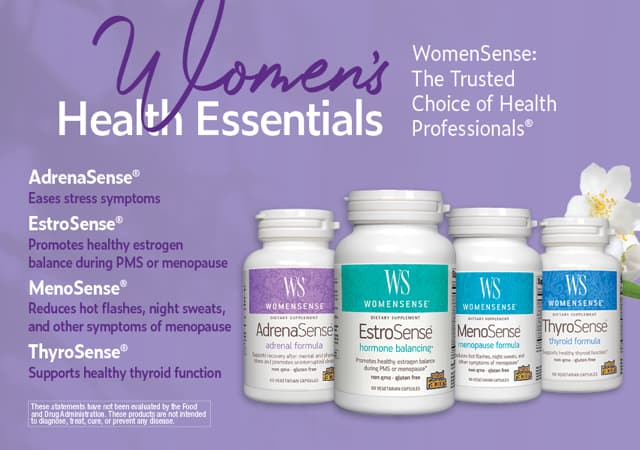PMS – Tips and What to Take
Can you tell when your period is right around the corner because your jeans are tight, you’re tearing up over little things, and you’re craving sweet or salty things? If so, PMS is making its presence known. We have some tips here and a recommendation on what to take for a good PMS supplement. Did you know certain plants and veggies have “DIM” to help?
What are Some Common Symptoms of PMS?
About 90 percent of women experience signs of premenstrual syndrome (PMS) at some point in their lives. It commonly causes bloating, sore breasts, fatigue, food cravings, and mood swings in the week before you get your period. For some women, PMS causes symptoms serious enough to miss work or school. For others, the discomfort is milder but still distressing.
PMS typically strikes at times of hormonal change like puberty, going on the pill, or after having a baby. You’re most likely to be affected in your 30s or 40s, with symptoms worsening as you approach perimenopause (the years before menopause). Premenstrual difficulties often run in families, so if your mother had it, you may inherit more than her eyes. PMS ends when you reach menopause and no longer have a period.
What Causes PMS?
Researchers think PMS may be caused in part by the fall in estrogen and progesterone that occurs after ovulation (day 14) and before menstruation (day 1). The emotional ups and downs you experience may stem from estrogen’s ability to increase serotonin, a neurotransmitter that promotes a positive mood. Less estrogen, less serotonin, lower mood. Some women find after a pregnancy that their PMS symptoms change, for the better or the worse. It varies a lot from woman to woman.
What Helps?
Fortunately, you don’t just have to endure a week of misery every month. These healthy habits may help relieve PMS symptoms:
- Exercising regularly throughout the month
- Cutting caffeine, salt, and sugar in the two weeks before your period
- Getting enough sleep
- Managing stress through mindfulness, massage, journaling, or talking to friends
- Quitting smoking
Plant-Based PMS Support
PMS help also comes from a surprising source: vegetables. That’s because cruciferous vegetables like broccoli, Brussels sprouts, cauliflower, and kale contain hormone-balancing compounds that may help with PMS.
DIM for PMS
When you digest these vegetables, your body converts the indole-3-carbinol they contain to another compound called diindolylmethane (DIM). DIM is thought to spur the body to produce a less potent, more beneficial form of estrogen (2-hydroxyestrone) while reducing the effects of a stronger form (16alpha-hydroxyestrone).
Natural Factors WomenSense® EstroSense® supports healthy hormonal balance, especially estrogen metabolism, during PMS (or even menopause!). It combines several compounds derived from cruciferous vegetables, such as sulforaphane, indole-3-carbinol, and DIM, with a range of botanicals such as green tea, turmeric, milk thistle, and lycopene for comprehensive support.
Next month, look for DIM in your PMS supplement! Then find natural women’s health support with the rest of the WomenSense supplements.
Get Plant-Based PMS Supplement with DIM
These statements have not been evaluated by the FDA. They are not intended to treat, diagnose, cure or prevent any disease.

